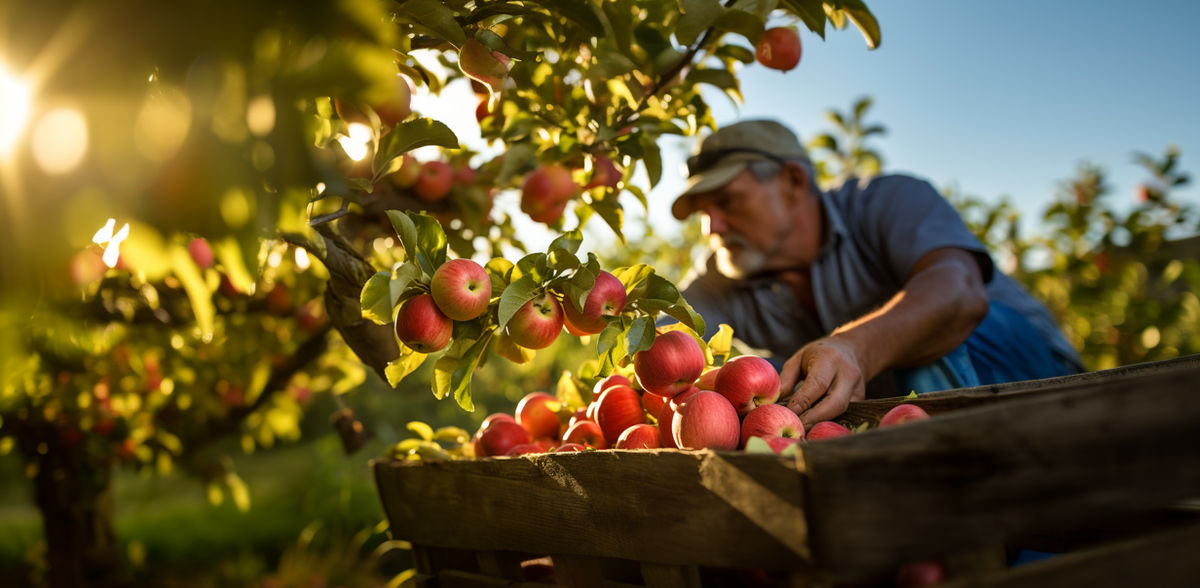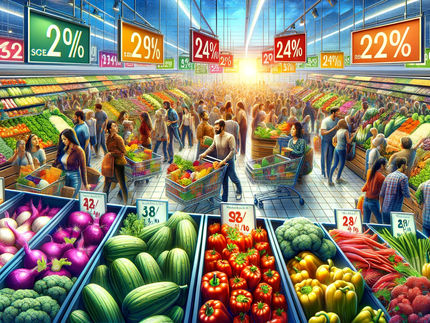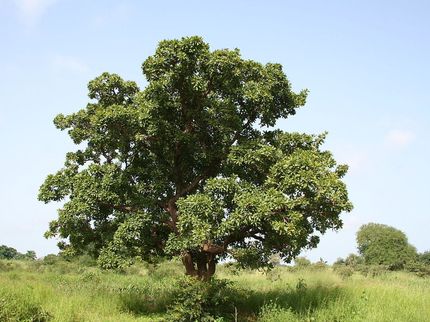Local Food Systems: How sustainable are business models for local food cycles?
Advertisement
Mobile units for processing fruit and vegetables on site may be an important part of the food supply in 2035. How such local food cycles can look like was investigated in the EU project FOX. Fraunhofer ISI has developed future scenarios for this purpose, with the help of which business models for regional processing and regional distribution of food can be tested for their future viability.
In the FOX project (Food processing in a box), 25 project partners from Germany, the Netherlands, Spain, France, Belgium, Poland and the Czech Republic have been researching innovative food technologies for use on site: With the mobile and flexible units, farmers and small and medium-sized enterprises can, for example, juice and gently preserve fruit and vegetables under low oxygen content or dry them at low temperature. Another technology is the selection and packaging of surpluses.
But how do these technologies fit into the changing world? To find out, the Fraunhofer Institute for Systems and Innovation Research ISI developed scenarios for the food sector in 2035 as part of the FOX project and analyzed how resilient business models are to different futures. The scenarios show three possible sustainable futures:
- In the first scenario, policymakers ensure sustainability through strict regulations and by producing food on their own farmland. Although sustainability and fair trade are important to consumers, price and quality are decisive for their purchases.
- In contrast, in the second scenario, the change comes from society: citizens are willing to pay higher prices for sustainable, fair-trade and regional food. The land belongs to individual farmers, and biodiversity is high.
- The third scenario describes a competitive environment with great power of trade. It is characterized by growth, progress, price pressure, monocultures and loss of biodiversity. Sustainability is important, but is only used by companies out of self-interest in order to still be able to produce and operate in the future.
On this basis, Fraunhofer ISI has researched the influence of the scenarios on the business models of FOX technologies in a foresight process. Project manager Dr. Björn Moller summarizes: "Across all scenarios and models, it is clear that the mobile units for processing food will continue to have potential in the future. However, the users of the technologies - which can be farmers, agricultural cooperatives or companies - will have to overcome challenges such as regulations, price pressure and changing demands. Most importantly, our illustration of the potential problems shows companies at what points they may need to adjust their business to be robust for the future."
Opportunities for local communities, challenges from pricing pressures
The scenario in which policymakers are primarily responsible for food production has positive implications for all three technologies due to the legal ban on food waste. However, the negative impact is that people find price more important than sustainability, as new technologies may be more expensive than proven ones. Similarly, regulations and decision-making processes can make it difficult to establish new technologies - the key here is to take any concerns seriously and address them early on.
Especially for the method of drying fruits and vegetables at low temperature, the high energy consumption can become a problem due to strict government regulations. Here, it is very important for companies to keep an eye on thecarbon footprint and reduce energy consumption as much as possible to stay in business.
The biggest positive impact of the scenario where society drives sustainability is the strengthening of local production: citizens are actors and have direct contact with farmers, local products are preferred for sustainability reasons, there is less spoiled food due to the short distances.
Difficulties could be that there is little interest in "premium products" and that there are health concerns especially with the technology for processing surpluses. Here, food producers must actively work with local consumers to evaluate and best meet their expectations for high-quality, healthy products. The effort required to do this is offset by the fact that customers are willing to pay more and make a long-term commitment.
The strong industry scenario would be the most challenging for all technologies, especially in view of the weaker role of farmers compared to retailers and the high price pressure. However, opportunities arise from the basically higher consumption, much interest in new products, and diversification through online platforms.
Among other things, the mobile unit for juicing with little oxygen and gentle preservation can open up new sources of income for farmers by making supply chains more efficient or using existing more efficient supply chains, benefiting from the possibilities of increasing e-commerce and also utilizing surpluses.
FOX project coordinator Dr. Kerstin Pasch of the German Institute of Food Technologies (Deutsches Institut für Lebensmitteltechnik e. V.) sees the added value of Fraunhofer ISI's foresight process primarily in the fact that "the systematic and structured approach made it possible to map different assessments of the future potential of the technologies and to identify new perspectives and solution options.
Note: This article has been translated using a computer system without human intervention. LUMITOS offers these automatic translations to present a wider range of current news. Since this article has been translated with automatic translation, it is possible that it contains errors in vocabulary, syntax or grammar. The original article in German can be found here.
























































